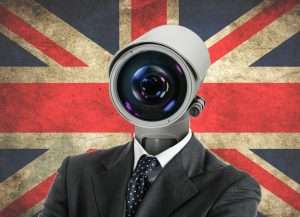But I actually have some more reasons to test. You see, Nextcloud is one of the tools we need to keep our democracy working. As Frank notes on his home page:
"Privacy is the foundation of democracy"And he is completely right. So, here are three different reasons why you should test (and help improve) Nextcloud:
1. The USA is making a massive swing towards even more spying
Obama has done nothing to curb the growth of the NSA and the scope of its operations. Secret laws spiked under his watch. Many of the folks about to be put in power by President-elect Trump favor more spying, including on US citizens, expansion of the NSA, a crackdown on whistleblowers and more. Trump's pick for CIA director calls for Snowden's execution. For what I can only guess must be giving proof of illegal government spying to dangerous terrorists like the Washington Post and the Guardian, who proceeded to win a Pulitzer prize by disclosing this information irresponsibly to the US public.In general, as somebody who changes his stance on hugely important and complicated issues like torture in under an hour, it is impossible to predict what Trump will do with the most powerful spying agency in the world under his control, but his appreciation for dictatorial figures like Kim Jong Il and Putin gives plenty cause for concern.
2. Britain isn't doing much better
I wrote about the Snoopers' charter just some days ago - this piece of legislation goes further than any earlier piece of spying law. It allows not only passive spying but also actively hacking devices from citizens.3. Nor is Europe
The UK is not alone. Since Snowden, Europe has complained a bit about the NSA but seems to simply follow suit, rather than doing anything about it. Germany is even introducing a bill that will allow spying on foreign journalists.Help out!
So, how can you help? Well, test Nextcloud 11 Beta, obviously. Help others to use it, get them involved. But it goes beyond Nextcloud - promote the use of and help improve tools like Tor, Signal and others, or democracy is screwed.Edit: updated the blog
